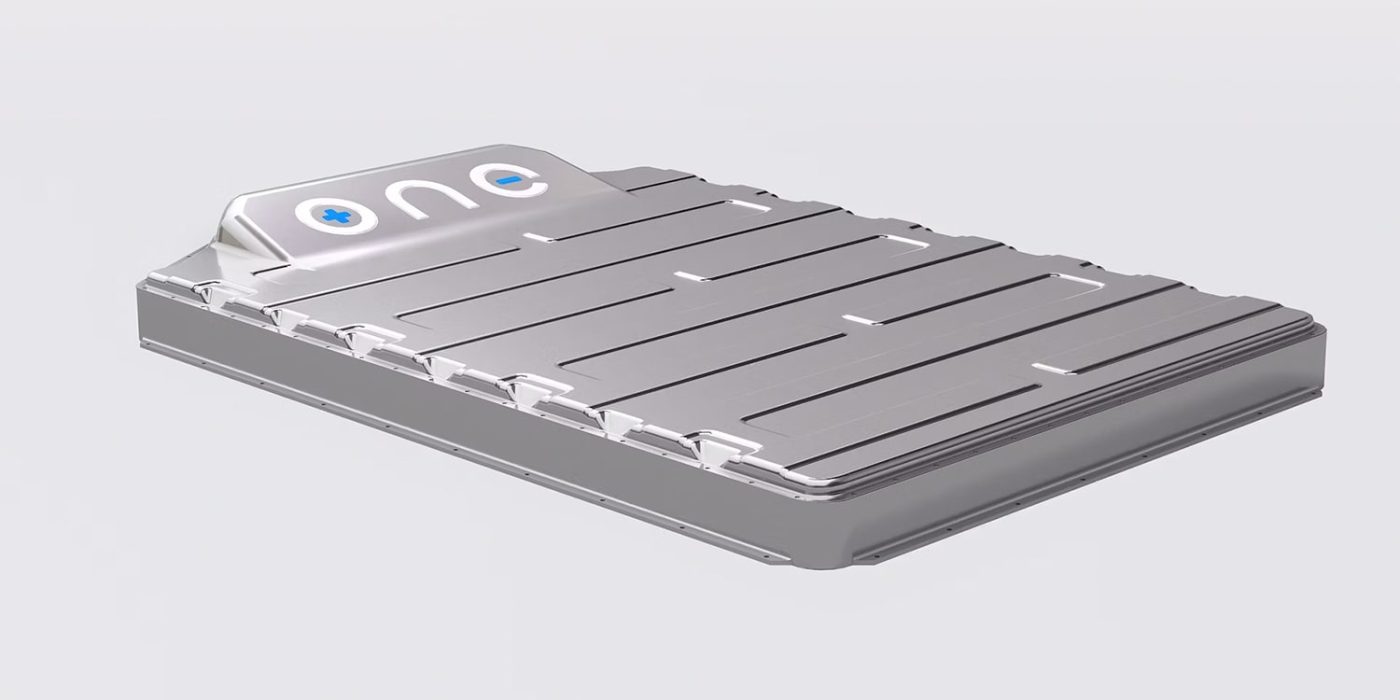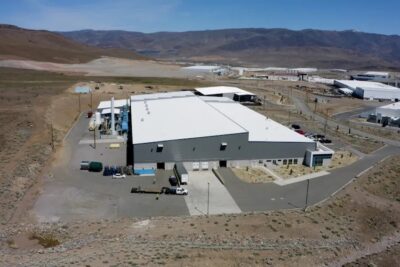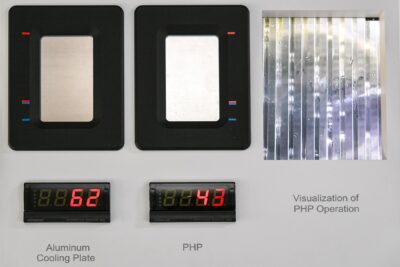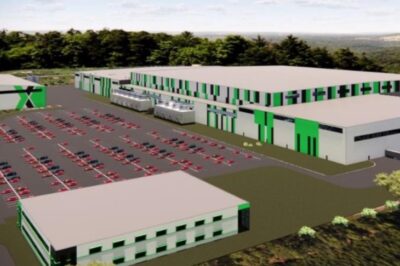Our Next Energy increases LPF battery pack energy density
The US battery start-up Our Next Energy (ONE), supported by BMW among others, is developing the second generation of its Aries battery pack with LFP chemistry. The energy density of Aries II is said to be only six per cent below the benchmark of NCM battery packs.
According to ONE, Aries II achieves an energy density of 263 Wh/L and 162 Wh/kg at the system level, an improvement of 34 and 23 per cent respectively over the previous LFP pack benchmark. The energy density is said to be only six per cent lower than NCM battery packs. Aries II achieves 3,000 cycles and costs 25 per cent less than comparable NCM batteries, according to an accompanying release from the US-based company. On its website, ONE mentions a capacity of 100+ kWh, an energy content beyond the 100 kWh mark. The range of a “typical electric car” should be able to be increased to more than 350 miles (about 563 kilometres) with the improved technology.
The improved battery is intended for cars and vans, as well as light trucks. “LFP batteries have many advantages over NCM batteries, including cost and durability, while using safer and more abundant materials,” says Mujeeb Ijaz, CEO and founder of ONE. “The key shortfall has been range and energy density. By engineering a battery pack with similar energy density to NCM, ONE has made LFP a sustainable alternative.”
The batteries are scheduled to go into production in late 2024 at ONE’s factory in the US state of Michigan. ONE expects Aries II to meet the requirements of the Inflation Reduction Act in the US, which should secure the company the associated funding.
Since the company was founded in July 2020, ONE says it has been working on “closing the energy density gap with NCM”. In the meantime, the energy density has been increased by 20 to 30 per cent compared to typical LFP battery systems, the company says. Aries II uses a new type of pack and cell design for this purpose. Specifically, ONE mentions progress in reducing the weight of the entire pack design.
In order to cope with the development work and the capital-intensive start of production, ONE had concluded a Series B financing round of 300 million US dollars at the beginning of the year. In the Series A round in 2021, BMW, among others, participated in ONE through its investment arm BMW i Ventures. ONE received an additional $220 million a few months ago in the form of grants from the US state of Michigan for the LFP battery cell factory already under construction mentioned above.
ONE is a startup based in the US state of Michigan that is working on a dual battery based on two proprietary technologies. The first, named Aries, uses lithium iron phosphate (LFP) chemistry in a cell-to-pack architecture to achieve high system-level energy density. ONE’s second technology – called Gemini – embodies a “high-energy battery pack” that is coupled to the first battery and charges it to extend range. According to earlier information, this will enable electric vehicles to travel up to 750 miles (about 1,200 kilometres) in the future.





1 Comment